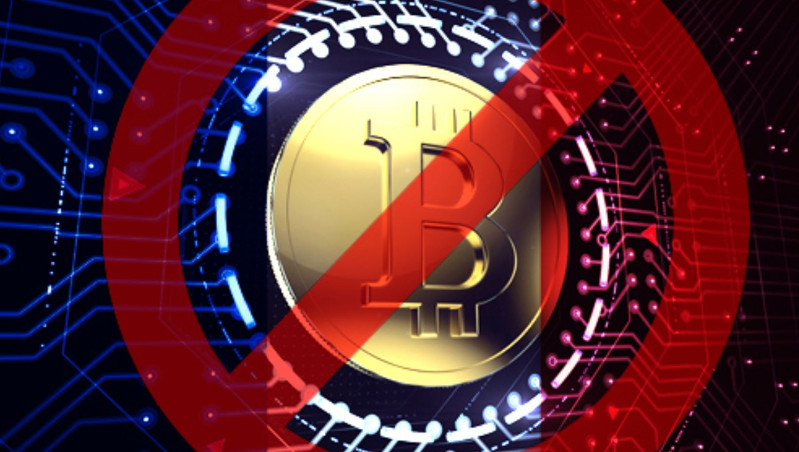Welcome to June; we here at Coinmotion hope that weather is friendly upon you wherever you are! For last month wasn’t that good for cryptocurrency markets in general.
Bitcoin started May with a price of over 9 000 dollars, but since then the price has been steadily falling down to current levels of a bit over 7 400 dollars at the time of writing. The price has seen some fluctuations, but generally the month was quiet for cryptocurrencies.
As usual, the declining price of bitcoin pressured other cryptocurrencies lower as well, with most of the important cryptocurrencies ending the month in lower range than they begun in. Markets in general seemed to have been in a general state of retreat.

The Co-Founder of Apple Wants Bitcoin for World Currency
In a recent interview by CNBC, Steve Wozniak, the co-founder of Apple, has revealed that he wants bitcoin to become an unifying, single world global currency. In this Wozniak is not alone. Previously Twitter’s CEO, Jack Dorsey, revealed that he believes for bitcoin to grow to world currency of every nation within the next 10 years.
“I buy into what Jack Dorsey says; not that I necessarily believe it’s going to happen, but because I want it to be that way,” Wozniak told CNBC.
According to Wozniak, Bitcoin is superior to any previous currencies because it’s based on mathematics, not on politics. Though politics may sway and swigger, mathematics is constant and true.
“Bitcoin is mathematically defined. There is a certain quantity of bitcoin, there’s a way it’s distributed – and it’s pure and there’s no human running it, there’s no company running it, and it’s just going and going, and growing and growing, and surviving. That, to me, says something that is natural, and nature is more important than all our human conventions,” Wozniak explained.

IMF Director: Fiat Should Evolve to Keep Up With Crypto
The International Monetary Fund (IMF) has published a new article by Deputy Director of the Monetary and Capital Markets Department, Dong He. In the article Deputy Director He weights the issue of how to make fiat currency more attractive in the digital age. According to He the rise of cryptocurrency might pose a danger to fiat currency if fiat itself doesn’t evolve.
Cryptocurrencies have several benefits over traditional fiat money. For an example they are cheaper to transfer and national boundaries don’t affect them. By using cryptocurrencies, essentially anyone can become their own bank.
According to Deputy Director, central banks and governments should look ways to adopt the developing financial technology innovations. Central banks could create their own digital tokens, which could be exchanged peer-to-peer in similar manner as cryptotokens are.
Dong He also calls for regulation for cryptocurrencies. As of now, regulation concerning blockchain and cryptocurrencies is minimal in comparison to traditional fiat currencies, which gives the cryptocurrencies an unfair competitive market edge. According to He, cryptocurrencies should be regulated to even the field for fiat currencies.
“Government authorities should regulate the use of crypto assets to prevent regulatory arbitrage and any unfair competitive advantage crypto assets may derive from lighter regulation. That means rigorously applying measures to prevent money laundering and the financing of terrorism, strengthening consumer protection, and effectively taxing crypto transactions,” He writes.

Bitcoin Ban Might Hint of Google’s Own Crypto
Google’s new policy to ban Bitcoin and cryptocurrency advertisements comes to effect this month. The ban policy has been criticized, because it affects all Bitcoin and cryptocurrency related businesses regardless whether they are legit or not. This has been seen as unfair and harmful towards markets.
According to experts interviewed by The Independent, the heavy-handedness of the ban might hint that Google might be on its way of creating a cryptocurrency of its own. For Google, their own digital currency would be much easier to handle than the independent and free nature of Bitcoin.
“I understand that Facebook and Google are under a lot of pressure to regulate what their users are reading, but they are still advertising gambling websites and other unethical practices, I suspect the ban has been implemented to fit in with potential plans to introduce their own cryptocurrency to the market in the near future and therefore removing other crypto adverts allows them to do it on their own terms,” Phillip Nunn, CEO of Manchester-based investment firm Blackmore Group, told The Independent.
In last May it was reported that Google approached Vitalik Buterin, the founder of Ethereum. According to sources Google was interested in securing Buterin’s services for Google’s own blockchain projects.

Dropping Google Searches Might Indicate a Period of Quiet
According to Google Trends, web searches for the word “Bitcoin” have dropped by 75% since January of 2018. Google Trends’ algorithm uses different values to calculate the general popularity of different search terms, the assigns them a comparable value. In the beginning of January “Bitcoin”‘s popularity was 37, and has dropped to 9 by the beginning of June.
Nicholas Colas, co-founder of DataTrek Research, connects the declining search interest to falling Bitcoin prices. Colas also notes that the number of new Bitcoin wallets being created has decreased.
In the last quarter of 2017, the number of new monthly Bitcoin wallets was estimated to be 7,6%. Since then the number of new wallets has dropped to about 3,7%.
“The comparisons between the 2017 back half comps, excellent, and 2018-to-date, poor, are stark and explain essentially all of bitcoin’s fall from grace this year. Simply put, history shows bitcoin wallet growth needs to be +5%/month to see meaningful price appreciation,” Colas told CNBC.

Catalonia to Use Cryptotokens to Incentivize Solar Energy
The government of Catalonia is developing its own blockchain tokens to be airdropped for local consumers who produce their own solar energy. The government of Spain has rules restricting the free trade and production of solar energy, requiring consumers who produce solar energy to pay a grid access fee before they can sell their excess power back to the national grid or share it with others using the grid.
Catalonian government believes that this policy hinders local energy production and the development of new energy sources. With the new ION cryptotoken Catalonia plans to circumvent some of the technical and legal problems caused by central government’s politics.
“With ION the trading is not with the utility company but between the peers of these solar communities. The ION token powers all the transactions within micro-grids,” said Lluïsa Marsal, the technological innovation lead at the Catalan Institute of Energy of the government of Catalonia.
Though technological innovation can be used to circle around legal obstacles, and some might see Catalonia’s project as being part of the Catalan government taking back power from Madrid, according to Marsal it is simply for the benefits of consumers and local energy producers.
“The token has nothing to do with independence. It’s an energy token to manage micro-grids,” Marsal told CoinDesk.

Another Altcoin Falls to An Attack Which Bitcoin is Immun
An altcoin called ZenCash is the latest in the so-called 51% attacks affecting cryptocurrencies. A 51% attack is a term that describes a situation where a malicious actor has control of more than half of mining power of any blockchain and decides to use it to manipulate the blockchain.
The attacker managed to manipulate the blockchain in such a way that they could use their ZenCash several times, in an action known as double spend. The attacker managed to double spend an amount of ZenCash which equals roughly to 550 000 dollars.
During the last month altcoins Verge, Bitcoin Gold, and Electroneum have also been affected by 51% attack. As the cryptocurrency markets grow and more altcoins are introduced, its harder and harder for any single cryptocurrency to proof itself reliably against 51% attacks.
This also highlights the importance of Bitcoin mining and how the energy used by mining operations is not “wasted”. Because of the immense computational power of the Bitcoin network, it is impossible for any single actor to gain control of more than half of the hashing power.


